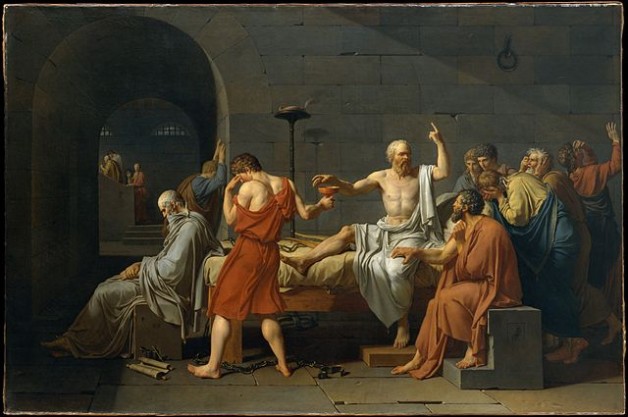In our technologically advanced society, it is easy to think that we have moved to a higher plane of thought than our forbears; that ours is at last a rational society. Reference is often made to some grand movement from sub-rational superstition to clear thinking. Objections to the latest ethical fashions are thus dismissed as archaic, and those who oppose embryonic stem cell research, abortion, extra-marital sex, same-sex ‘marriage’, and contraception are portrayed as relics of a dark age existing before people were freed of their superstitious fears by the light of scientific understanding. We believe in God, it is said, because we are scared of death.
It is a rhetorically compelling dismissal, but that is just what it is—a dismissal, a refusal to engage in a real discussion about our ultimate disagreements. The main problem the Church faces in America today is not just that people fail to find God as the answer to the human search for meaning and fulfillment, but that the very question which fuels this search is dismissed: the question “why?” The greatest question of the human heart is mocked into silence for being, in the words of Richard Dawkins, a silly question.
How can a time of so much scientific prowess, also be a time that fails to consider the ultimate questions?
Ancient Greece is an instructive example. Classical Greece was a time and place where questions of great philosophical importance were discussed widely. The logically robust and scientific culture of this ancient democracy lies at the very origin of the intellectual heritage of Western civilization. So great is the legacy of Greek thought that Early Christians even used the philosophical tradition of Athens to explain the Divine Revelation of Jesus Christ.
But Greece was not a perfect utopia built upon peaceful symposia and spectacular market place debates about the immortality of the soul. The Greeks were also brutal. The leisure for philosophical inquiry was provided by the hard labor of slaves. And despite the philosophers’ calls for moderation, the Greeks indulged in sensual pleasures that even in our increasingly licentious times would be found repugnant.
Even the intellectual realm was not pure. Besides philosophers, ancient Athens had plenty of sophists, who argued and taught the art of rhetoric not for truth, but for money and power. In fact, if we accept Plato’s account, this very same intellectual hub executed Socrates for acting outside this system of intellectual peacock shows.
It is tempting to think that we live in a time and a place where rational inquiry rules the day, where old superstition is being jettisoned and new clear thinking adopted. But intellectual fashion and original sin are a part of every era. Therefore, the Church has a duty to challenge the unquestioned assumption of progress that typifies our age. Most fundamentally we must counter the assumption that we can take care of ourselves. Our temptation since Adam has been to assume that we can solve our own problems.
Jesus Christ is the savior the world. More than a bump sticker platitude, the reality is that Christ, who is God’s very wisdom, is the only path to salvation and the true progress which we all seek. The answer to our ultimate question is a Person who is encountered not in the form of a rhetorical flourish or scientific demonstration but as our dear brother who died for us.
✠
Image: The Death of Socrates, Jacques-Louis David







